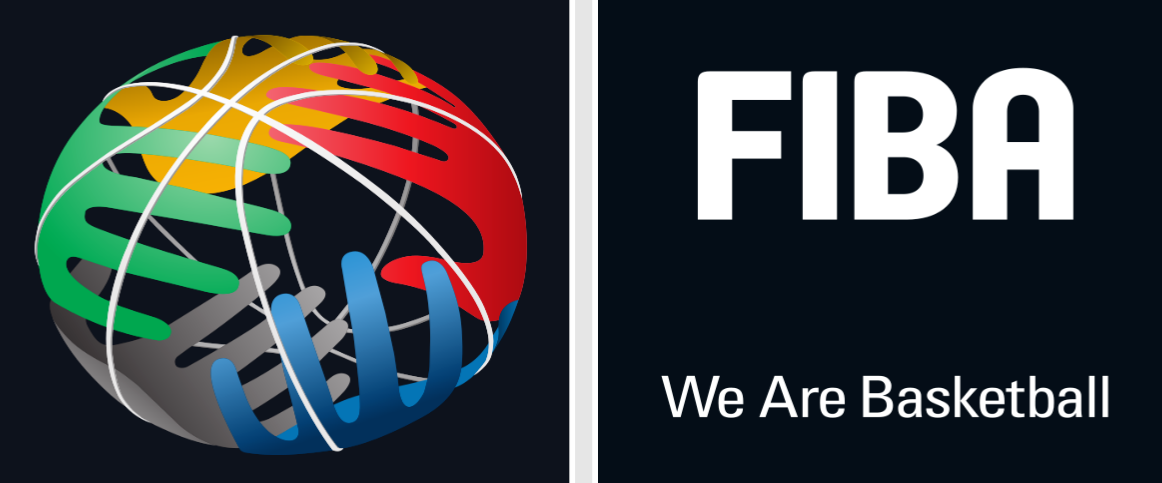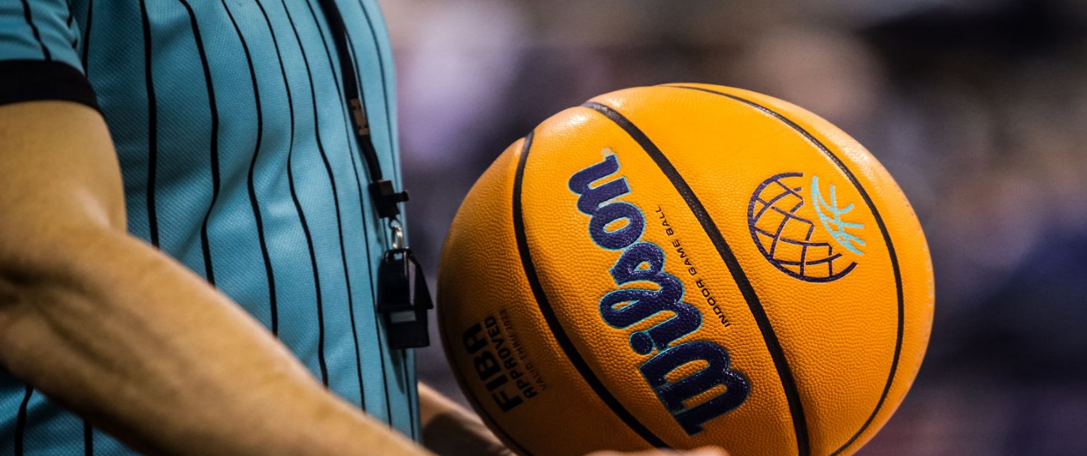FIBA is an acronym for “Fédération Internationale de Basketball,” the International Basketball Federation.
Introduction
Origin and significance of basketball associations
Basketball, since its invention by Dr. James Naismith in 1891, has evolved from a simple gymnasium game to a global phenomenon. Basketball associations play a pivotal role in organizing, promoting, and fostering talent in the sport at both national and international levels. These associations not only ensure the sport’s regulations and standards but also provide opportunities for players to showcase their skills and passion for the game. For those interested in a deeper dive, Wikipedia offers a comprehensive history of basketball.

Brief overview of FIBA’s role
The Fédération Internationale de Basketball, commonly known as FIBA, stands as the sport’s global governing body. Founded in 1936, FIBA is responsible for defining the rules of basketball, specifying the equipment and facilities required, and organizing international competitions. Beyond its role as a regulatory body, FIBA actively works to develop and promote basketball around the world, ensuring the sport’s growth and popularity continue to rise. With a reach that spans continents, FIBA’s influence is pivotal in shaping the future of basketball.
Historical Background of FIBA
Early years of international basketball
Since basketball’s invention in the late 19th century, its appeal quickly crossed borders. Within a few decades, numerous countries embraced the sport, leading to the organization of regional matches and tournaments. Europe, in particular, showed a keen interest in basketball, with countries like Italy, France, and Latvia holding their own national championships by the 1930s. The international community soon recognized the need for a unified governing body to regulate these cross-border competitions and establish standard rules. For a comprehensive chronology of early basketball events, the Wikipedia page on basketball’s history offers insightful details.
Formation and inception of FIBA
Seeing the rapid global growth of basketball, representatives from eight nations gathered in Geneva, Switzerland, in 1936. Their aim was to form an international federation that would govern and standardize the sport globally. This meeting led to the birth of the Fédération Internationale de Basketball, or FIBA. From its humble beginnings with just eight member nations, FIBA has grown to include over 200 national basketball federations today. FIBA’s formation was pivotal in streamlining international basketball competitions and setting the stage for events like the World Championships and Olympic basketball tournaments.
Meaning of the Acronym “FIBA”
Word by word breakdown of “Fédération Internationale de Basketball”
“FIBA” stands for “Fédération Internationale de Basketball.” Let’s break down the meaning of each word:
- Fédération: This French word translates to “Federation” in English. It signifies a union or a group that comes together with a common purpose or mission. In this context, it represents a collection of national basketball associations.
- Internationale: Also a French word, “Internationale” means “International” in English. It emphasizes the global reach and influence of the organization.
- de: A simple preposition in French, “de” translates to “of” in English.
- Basketball: Borrowed directly from English, “Basketball” remains the same in many languages. It indicates the sport that the federation governs.
For those interested in exploring the nuances of the French language and its rich history, Wikipedia provides a thorough overview.
Language and regional implications
Choosing French for the acronym “FIBA” was not arbitrary. French is one of the official languages of many international organizations, including the Olympic Committee. The choice also reflects the rich basketball heritage in Francophone countries and the influence of European nations in the early formation of FIBA. Additionally, by using a universally recognized term “Basketball” at the end, FIBA ensures its name is understood and resonates with basketball fans and professionals worldwide. The choice of language is a testament to the sport’s global nature and the fusion of cultures it represents. For more on the influence of language in international sports, one can explore Wikipedia’s page on international sports federations.
FIBA vs. Other Basketball Associations
How FIBA distinguishes itself from NBA, EuroLeague, etc.
FIBA, as the global governing body for basketball, has a distinctly different role than other major basketball associations. Here’s how:
- Scope of Authority: FIBA oversees basketball rules, regulations, and international competitions worldwide. In contrast, leagues like the NBA focus on professional basketball within specific regions, such as North America in the NBA’s case.
- Tournaments and Championships: While the NBA organizes the annual playoffs culminating in the NBA Finals, FIBA is responsible for global competitions like the FIBA World Cup. Similarly, the EuroLeague is a top-tier European professional club competition, whereas FIBA oversees national team competitions in Europe.
- Development and Promotion: FIBA is actively involved in developing basketball in regions where the sport isn’t traditionally popular. This role contrasts with regional leagues that primarily focus on enhancing the game within their territories.
The global perspective: How FIBA’s name reflects its international role
The very essence of FIBA’s name, “Fédération Internationale de Basketball”, underscores its global mandate. The use of “Internationale” emphasizes the federation’s commitment to uniting basketball communities across continents. In a world where basketball has numerous leagues, associations, and regional governing bodies, FIBA’s name stands out as the entity that binds them all. This international perspective contrasts with associations like the NBA, whose name (National Basketball Association) highlights its national focus. For a broader understanding of how sports organizations position themselves globally, Wikipedia’s page on international sports offers an in-depth look.
Evolution of FIBA’s Role and Image
Changes and expansions over the years
From its inception, FIBA has transformed tremendously in terms of its influence and reach. Here are some pivotal shifts in its journey:
- Membership Growth: Starting with only eight nations in 1936, FIBA now boasts affiliation with over 200 national basketball federations. This growth is a testament to basketball’s global appeal and FIBA’s success in fostering the sport’s development.
- Tournament Evolution: While initially focused on organizing the Men’s Basketball World Championship, FIBA has since introduced and managed numerous competitions. Notable additions include the Women’s Basketball World Cup and the 3×3 Basketball World Cup. Fans and enthusiasts can follow the historical trajectory of these competitions on Wikipedia.
- Rules and Regulations: As the sport evolved, FIBA continually revised and updated basketball’s rules to keep it dynamic and engaging. These modifications ranged from changes in game duration to the introduction of the 3-point line.

The significance of the name in modern times
In today’s interconnected world, where global collaborations are more common than ever, FIBA’s name holds profound significance. The term “Internationale” in its name not only underscores its global reach but also represents unity, inclusivity, and collaboration among nations. It’s a reminder that, despite the plethora of national and regional basketball leagues and competitions, there’s a single entity that ties the global basketball community together. The name “FIBA” has become synonymous with international basketball excellence and governance. For a more comprehensive understanding of global sports branding and naming conventions, one can explore Wikipedia’s insights into sports organizations.
Cultural and Geographical Implications
How the name “FIBA” is perceived in different countries
Across the globe, the name “FIBA” conjures respect and recognition, but its perception varies somewhat based on regional and cultural nuances:
- European Countries: Given that “Fédération Internationale de Basketball” is a French term and considering Europe’s pivotal role in FIBA’s formation, European nations often perceive FIBA as a reflection of their continent’s influence on global basketball.
- Americas: In North and South America, where basketball holds significant popularity, FIBA signifies the global dimension of a sport many associate with the NBA. For them, FIBA is the bridge between their local passions and the global basketball community.
- African and Asian Nations: In countries where basketball has seen explosive growth in recent decades, FIBA represents opportunity, growth, and a chance to showcase their talents on the world stage. For a detailed exploration of basketball’s growth in these continents, the Wikipedia page on African basketball and Asian basketball offers deeper insights.

The universality of basketball as a sport
Basketball’s appeal is undeniable. From urban courts in New York City to makeshift hoops in rural African villages, the sport is both accessible and beloved. Here’s why:
- Simplicity: The basic rules of basketball are straightforward, making it easy for newcomers to grasp and enjoy.
- Minimal Equipment: All one needs is a ball and a hoop. This simplicity has facilitated the sport’s spread to regions irrespective of their economic status.
- Cultural Influence: Basketball isn’t just a sport; it’s a culture. With global icons, sneakers, music, and movies, basketball culture transcends borders. To delve deeper into the cultural impact of basketball, Wikipedia’s page on basketball culture is a treasure trove of information.
- Inclusivity: Basketball is for everyone. Regardless of height, gender, or background, the sport has stars from various walks of life, making it relatable to fans worldwide.
In essence, while FIBA’s name carries unique cultural and geographical implications, basketball’s universal charm unites enthusiasts from every corner of the planet.

